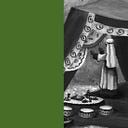Panentheism: A Quirky Faith that Keeps Me Going
My sense/myth of panentheism is kinda like “inner light” theory as in Augustine or the universal fire in Stoicism but without a controlling switch at the top of it all — ie a sense of divinity without a Demiurge. Closer to polytheism than monotheism but much more wholistic than polytheism. The light or energy within all beings is connected to be or to become One.
Human conception is, as Douglas Hofstadter argues, metaphor in categories. By drawing images, expanding and connecting them, we learn to live and thrive in our world. Metaphors like light, fire, energy, and stories of Buddha, Krishna, Allah, Christ.
I think that religions might all be considered expressions of a sense of divine light. Just with different metaphors and categories. The light coming out of darkness meets the eyes from outside triggering light from inside or vice versa. It is only in darkness that we can see light. Light (or energy or feeling) coming to and from the world and everyone in shared awareness.
Twentieth century analytic philosophers (Bertrand Russell, GE Moore, Ludwig Wittgenstein) came to understand reality through language (the “linguistic turn” against Continental idealism and mind-matter dualism). In their analysis of meaning in language using symbolic logic, they espoused that any meaning of “God” as transcendent being was beyond understanding or logical proof.
Mathematician Kurt Gödel proved the improvability and incompleteness of any formal system of logic or mathematics by showing that any logical system is built on assumptions whose only proof must be built on other assumptions. E.g. elephants all the way down.
For any of us moving into the twenty-first century, caught in the seeming absurdity of human existence and the uncertainty of science, philosophical inquiry turned back to idealism, transcendentalism, social construction, eastern thought, or faith without reason. A sort of renaissance of theology without metaphysics, e.g. fixed essences.
Or we played with the “radical empiricism” of pragmatism and phenomenology which, like analytic philosophy, also objected to modern dualism of matter and spirit, body and mind, science and faith.
Existential phenomenology reflects back on the ground or pre-objective experience or consciousness in the objectifying behavior and perception of and to the world. It is the awareness of one’s own bodily existence in action and transition, in search for “truth, justice, and the American way” (as Superman would say).
Merleau-Ponty in the phenomenological tradition calls the pre-objective awareness of transition in human existence “trancendence.” It is the pre-objective context or background of human existence in the perception of objects in and to the world through symbols or images or formulas.
Scholastic Thomist Bernard Lonergan calls this sense of transcendence, not the “concept,” but the “notion” of God because God, as the objective of the infinite desire to know, can not be objectified but only experienced in our action and desire to understand. Thus, he coincides with the analytic philosophers while at the same time pointing out a different kind of understanding, subjective and creative over objective and fixed knowledge. As with Kant he links the in-here with the out-there.
John Dewey in the pragmatic tradition calls this pre-objective experience the context of our words and symbols. He includes religious experience which he differentiates from religion as the diverse expressions of this experience. He warns against the fallacy of the absolute that focuses on referents out-there (things or objects) without realizing the source in-here (corporeal consciousness).
Hannah Arendt contributes the political dimension of perception and understanding. Like Dewey, she traces the human transit towards Beloved Community (MLK’s utopian term) in publics where humans speak and act in concert as equals and as initiators of our worlds and our selves.
Albert North Whitehead, a process philosopher and theologian understands, consistent with science, that all that is is in relation as part of the universal process. Theologians following him recognize God as consciousness of the relationship in and relationality of all beings. Hmm, like God is Love — a verb not a noun.
Computer or AI thinkers link consciousness to information. Perhaps a matrix of expanding information. Hey, let’s say light from dark matter, dark energy concentrating in black holes in multiverses. Imagine that!
I find that, whether or not all imaginative thinkers believe in a supernatural or transcendent God or not, i.e. whether they consider themselves theists or atheists, they give me permission to be neither. I imagine my conciousness in and to the world in interaction with others learning and teaching the way to flourish as humankind. My consciousness forged by parents, teachers, and peers is to be a light with others to bring light into the world. That light joined with others is my way to a fulfilling of our common potential as brothers and sisters desiring freedom, justice, and happiness in this world. It is our path to infinity and eternal life. Omega Point.
That makes me a panentheist not necessarily as defined by the dictionary or Wikipedia, but more as I understand Buddhism and many other religions and philosophies. Calling myself a panentheist works for me right now so I do not have to consider myself either an atheist or a theist but can appreciate art, science, myth, religion, philosophy, and politics as ways to be human. And admire, even in ages of turmoil, the magnificence of humanity in the act of creation or, if you want, co-creation.
